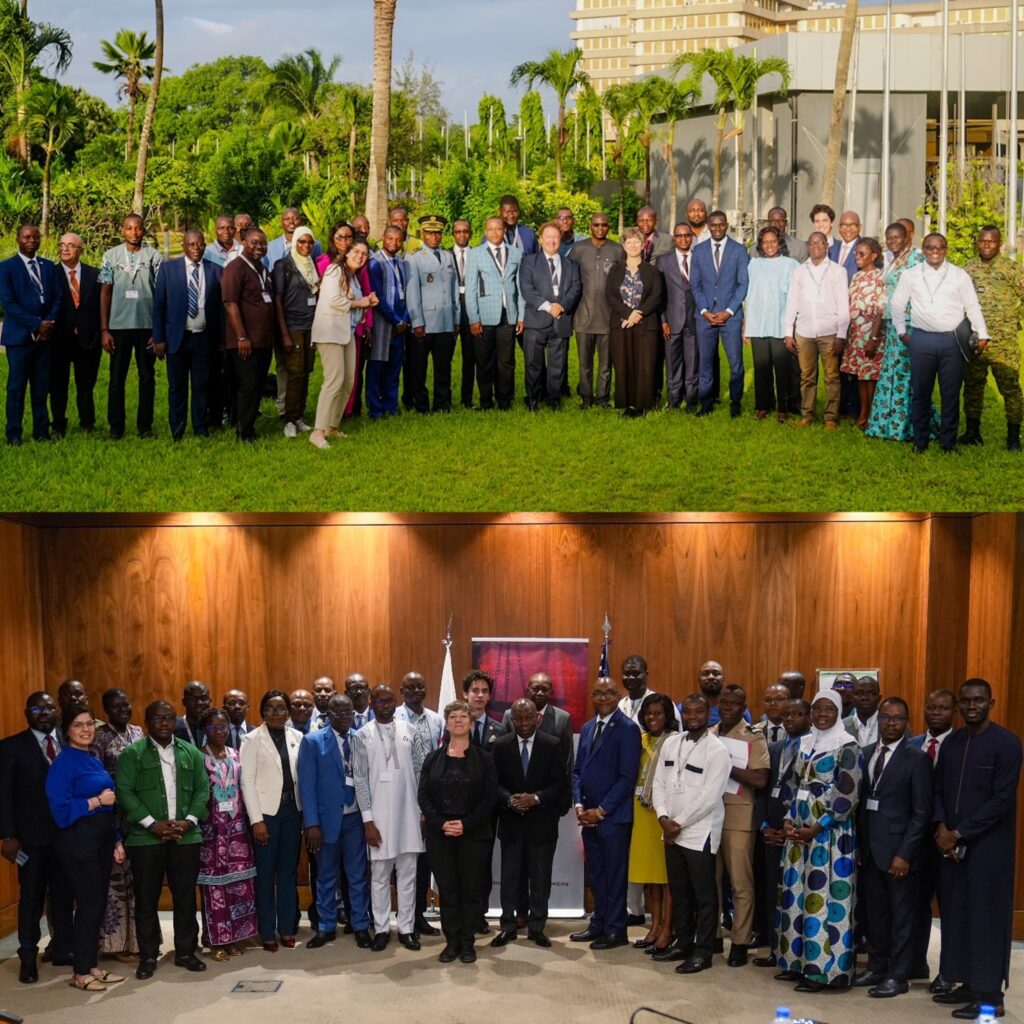
In June 2024, the Academic Unit of the IIJ, with the support of the U.S. State Department, organized the in-person component of the fifth edition of the "Counter-Terrorism: Academic Curriculum" (CTAC) programme. This edition was designed for 30 investigators, prosecutors and examining judges from eight French-speaking West African and Sahelian countries (Benin, Burkina Faso, Cameroon, Côte d'Ivoire, Central African Republic, Senegal, Chad and Togo) who are in charge of counter-terrorism proceedings or who may soon have such responsibilities.
This fifth in-person course brought together practitioners from the first, second, fifth and sixth eCTAC cohorts - the first part of this selective and intensive training programme. This online component aims to deepen their knowledge and skills in proactive counter-terrorism investigations and prosecutions, i.e. before the occurrence of terrorist attacks.

From June 10 to 14, the practitioners were invited to Lomé, Togo, to further their specialization in this sensitive and evolving field. The commitment and support of the Togolese authorities are to be commended. This was the first CTAC course delivered by the Academic Unit in a French-speaking country in West Africa, particularly on the Gulf of Guinea, which is currently on the crest line of the terrorist threat.
This new edition of the CTAC was designed and implemented on the basis of a peer-to-peer approach by Ms. Marie Compère, Judge and Director of the Academic Unit, and Mr. Cheibou Samna, Resident Fellow at the Academic Unit and former Public Prosecutor of Niamey, with the support of international experts, Mr. Fabrice Cuvillier, Commandant de Police Divisionnaire honoraire and security consultant specializing in post-attack judicial investigations and crisis negotiation and management, and Mr. David Izadifar, former UNODC counter-terrorism expert, with the kind participation of Mr. Bernard Lavigne, French regional liaison magistrate. Participants also had access to specific content from Conflict Armament Research, an organization that has been combating the trafficking of small arms and light weapons and their ammunition, as well as improvised explosive devices, since 2013, with the support of the European Union.
This in-person programme was built around a series of exchanges and group work sessions, during which participants worked together on practical aspects of the judicial handling of terrorism, sharing their experiences and practices while highlighting the concrete challenges they face in the field.
During this CTAC, practitioners continued to adapt the various mechanisms and tools made available by the IIJ to their respective contexts. They used the coordination plan and international cooperation tools and developed strategies of investigation for fictitious attacks. Based on files designed by the IIJ's Academic Unit, they all worked to research, substantiate and corroborate incriminating and exculpatory evidence in proceedings against persons or entities likely to have taken part in terrorist activities. These elements included confessions, testimonies, forensic evidence, material and ballistic elements, analysis of financial flows and communication data, as well as judicial matches.
These judicial actors praised the network that this training, right from its online component, has enabled them to weave and consolidate. They were able to create a real dynamic between and within the various national delegations, and said they wanted to continue this cooperation in their respective functions. This state of mind is shared by all CTAC promotions and was once again immediately reflected in meetings with alumni from previous iterations, whom the Academic Unit was delighted to welcome back!
At the closing ceremony, each of the national delegations, as well as the promotion's representative, expressed their assurance to Professor Guy Mipamb Nahm-Tchougli, Togo's Minister of Justice and Legislation, and to the IIJ Academic Unit team that they would put into practice the lessons learned and feedback from this exceptional week!
